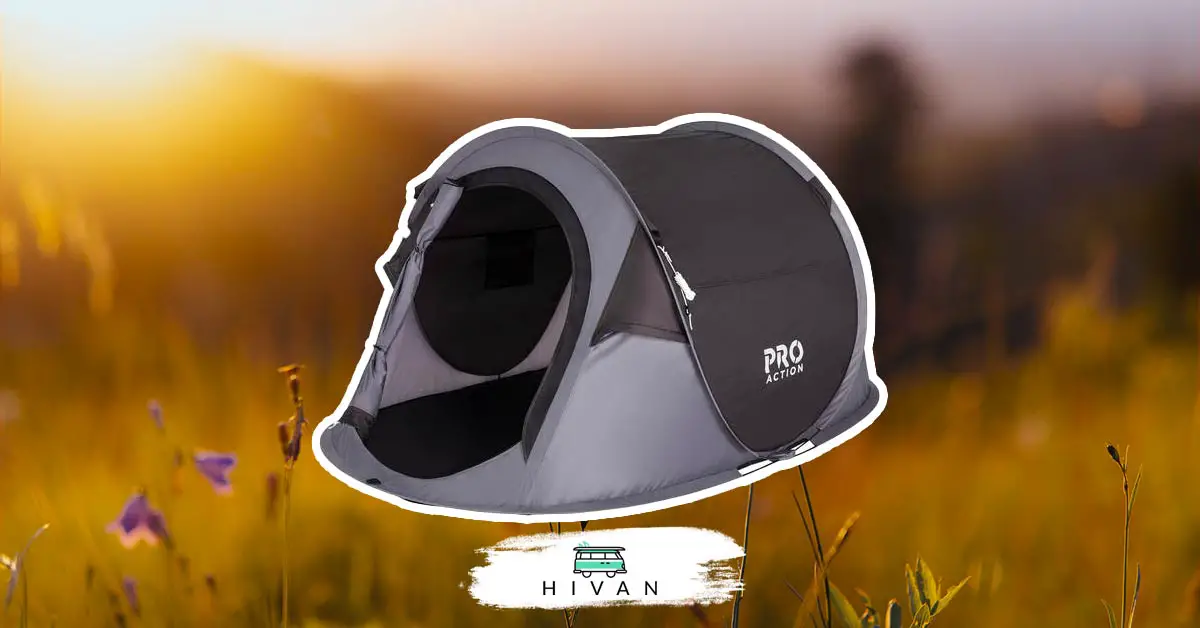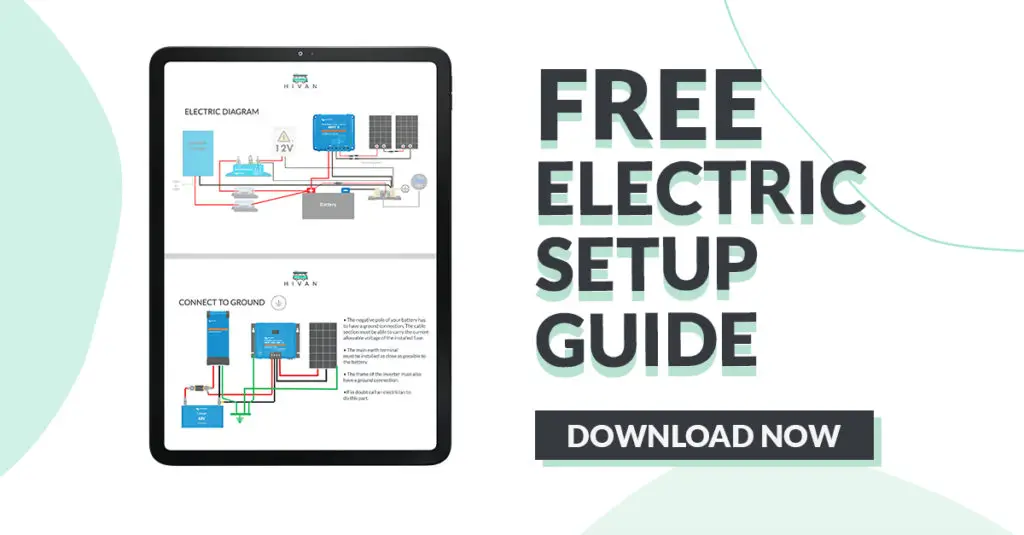Hi-van is supported by its audience. When you purchase using our links, we may earn an affiliate commission (no added cost to you). Learn more
Going camping is a fantastic way to connect to the environment, enjoy the astounding beauty of the natural world, and unplug from the stressors of civilization. When I head off into the woods, I want to make sure that I choose the right gear to be safe and comfortable, especially including my choice of tents. And the color makes all the difference, doesn’t it?

Black tents are hotter than other colors because black objects absorb all of the sun’s visible light wavelengths and convert those wavelengths into heat. It’s important to keep in mind that there are several additional factors that determine the heating and cooling abilities of a tent.
In this article, I’ll be discussing in-depth why black tents are hotter than other colors and offer helpful tips in deciding whether a black tent is a right choice for your camping needs.
Why Black Tents Retain More Heat
Simply put, black tents are hotter because they absorb more of the sun’s rays of light than other colors and convert those wavelengths into heat. Thus, these tents retain the most heat when exposed to the sun when compared to tents of other colors. This means that choosing a black tent can have a direct effect on how hot or cool you stay during your camping trip.
Let’s take a closer look at the reasons why black tents are so hot.
How Black Objects Absorb the Most Heat
Black objects absorb all visible wavelengths of light emitted from the sun. As these wavelengths are absorbed, they are then converted into heat. In the case of a black tent, the absorbed wavelengths heat up the tent.
The conversion of light to heat occurs on the atomic level of the black tent.
Essentially, the electromagnetic energy of the sun excites the molecules of the tent into vibrational movement. As the atoms vibrate faster they collide with one another and this increase in vibrational energy is felt by us as heat.
The Science of Color Absorption and Reflection

In fact, according to physics, the “color” black isn’t technically a color at all. Instead, it’s the lack of visible light precisely because it absorbs all visible wavelengths of light.
Color, scientifically speaking, represents visible light of a specific wavelength.
White, then, scientifically speaking, is also not a color, but instead reflects all visible wavelengths of light. White tents are cooler because the white objects reflect all wavelengths, and thus do not absorb them or convert them into heat.
A true color, like red, absorbs all the visible wavelengths of the sun’s light except the red wavelength, which happens to be the longest at around 700 nanometers (2.75591e-5 inches).

To Get a Black Tent or Not To Get a Black Tent?
If your goal is to camp in the summer months in the Southern US, then you may not want to purchase a black tent. However, if your goal is to make sure you’re keeping as warm as possible while camping, then purchasing a black tent could certainly help keep you warmer.
It Could Be Sweltering
Imagine this scenario: You’ve arrived at your camping destination early in the morning, pitched your black tent, and set off for a beautiful, refreshing 5 mile (8-kilometer) hike.
You make a day out of the hike, stopping along a particularly scenic part of the trail for lunch, hanging up a hammock to read for a spell, and finally wading in the woodland creek.
Everything sounds lovely so far, right? Well, you return to your camping site at 6 pm and decide to head into your tent to rest for a while before making dinner. This is when you realize that you are quickly sweltering inside your black tent.
While you were off enjoying nature, your black tent was retaining all of the heat from the bright summer day and now it’s like an oven inside. Yikes.
- Lightweight and easy set up with a carry bag, ideal for Backpacking Scout Outdoor Camping Hiking Fishing in fair weather (It's a basic tent that not for rainy day.)
- Open Dimensions: 83 x 55 x 43 inches,Pack Dimensions: 4.5 x 4.5x17inches
- Rain Fly Vented Roof, Two Durable Glass-fiber Poles (6.9mm Dia.),4 Metal Stakes, 1 storage bag
So, if keeping cool is your goal I’d suggest you check out this white Yodo Lightweight 2 Person Tent from Amazon.com. Since the white tent reflects all of the sun’s visible wavelengths, it will not absorb the wavelengths or convert them into heat.
In this scenario, a white tent could not only help keep you more comfortable but can aid in staving off safety concerns of hot environments such as heat exhaustion or heat stroke.
It Could Keep You Nice and Warm
However, if you’re interested in primarily camping during cooler months or in cooler, high altitudes during the summer months, then purchasing a black tent may very well be a great option for you.
In this scenario, after a long day of hiking and enjoying nature, you can come back to your tent and be glad that your black tent has absorbed all that visible light and converted them into heat.
As the temperature drops outside your tent, you’ll enjoy some extra warmth provided by all the heat retained in your black tent. Not only will you enjoy that extra warmth, but you’ll be camping smarter by providing additional protection against the potential dangers of cold environments such as hypothermia.
Important Additional Considerations
Staying warm while camping in cooler or cold environments is an extremely important safety consideration. While choosing an appropriate tent color is certainly not the only consideration to keep in mind when preparing for a safe camping trip in cold weather, it is among the decisions that a practical-minded camper should make.
Additional considerations of the tent’s heating and cooling abilities include:
- How waterproof the tent is.
- Ventilation
- Manufacturing designs.
- Where the tent is set up.
- How many people will be sleeping inside.
- The material of the tent.
- Overall design quality and intention, such as a three-season versus a four-season tent.
Related Articles: How Thick Should a Tarp Be Under a Tent? Are Ultralight Tents Worth It? 5 Things to Know Is It Safe to Sleep Outside Without a Tent?
Final Thoughts
Everyone wants to enjoy their time out in nature and stay safe and comfortable while doing so. Now that you know that black tents retain more heat by absorbing all of the sun’s visible light and converting them into heat, you’ll be able to make a better, more informed decision about what color tent is right for you and your camping goals.
Find this content useful 🙂 ?
Subscribe to our Newsletter and get a free Solar Electric Diagram + shopping list.


